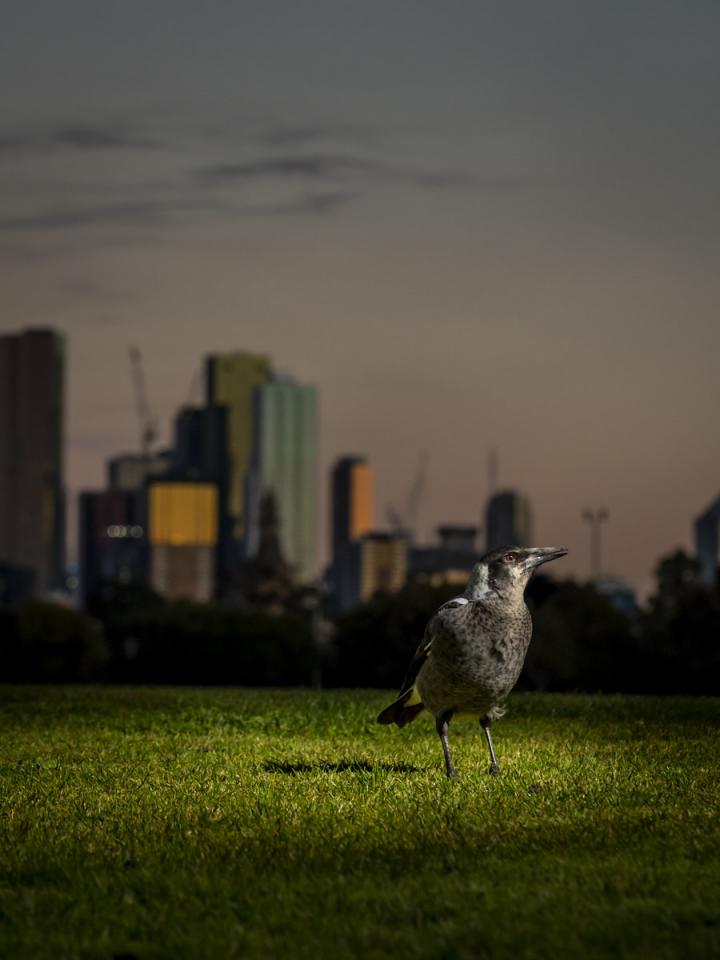Study first to measure neurological responses to light pollution in wildlife

Credit: Photographer Doug Gimesy
Researchers are urging city-dwellers to switch off their garden lights at night-time after a study of magpies and pigeons revealed the harmful impact artificial light is having on the birds’ sleep patterns.
The study by La Trobe University and University of Melbourne, published today in Current Biology, is the first to measure neurological responses to light pollution in wildlife.
The researchers looked at how birds’ sleep was affected by artificial white light and the apparently more “sleep-friendly” amber light.
They found light comparable in intensity to street lighting can disrupt the length, structure and intensity of sleep in magpies and pigeons, regardless of the light’s colour.
Utilising miniature sensors to measure magpie and pigeon brain activity, researchers found their non-rapid eye movement (NREM) and REM sleep cycles were altered when exposed to white and amber lighting at night, but that the magnitude of these effects differed between the species.
La Trobe University sleep expert Dr John Lesku said that while magpie sleep is more disrupted under white light compared to amber light, both types of light are equally disruptive for sleep in pigeons.
“Both magpies and pigeons average 10 hours of sleep per night. We found that magpies lost more NREM sleep under white light than amber light. By comparison, pigeons lost around 4 hours of sleep under both white and amber light,” Dr Lesku said.
“Interestingly, neither species fully recovered sleep lost to white or amber light exposure.”
University of Melbourne and La Trobe University researcher Dr Anne Aulsebrook said changes to sleeping patterns in birds, caused by human light pollution, is concerning.
“We know sleep is important for animals to not only function, but thrive,” Dr Aulsebrook said.
“While amber lighting appears to have a less damaging impact than white light on magpies, our findings suggest the relative impacts of light pollution on birds may be species-specific. Amber lighting can reduce sleep disruption in some birds, but it is not a solution for all species.
“Additionally, disrupted sleeping patterns that force birds to catch up on sleep in the daytime could impact their ability to forage for food, fight off predators and search for mates.”
University of Melbourne and La Trobe University graduate researcher Farley Connelly recommended further research into avian circadian rhythms and the implementation of short-term solutions.
“We should think about using artificial light only as and where it’s needed,” Mr Connelly said.
“Switch off that porch light, install sensor lights, remove decorative lights from trees, balconies and other outdoor settings, and keep street and park lights directed to the ground or shielded where possible.
“And if you’re ever woken by the early call of a magpie, remember it could be just as sleep deprived as you are.”
###
Media Contact: Dragana Mrkaja, [email protected], +61 447 508 171
Media Contact
Lito Vilisoni Wilson
[email protected]




